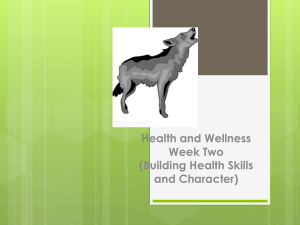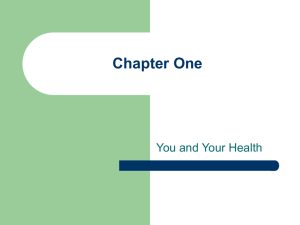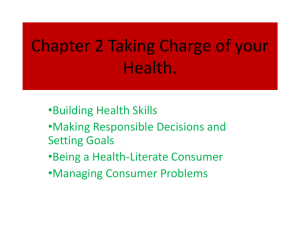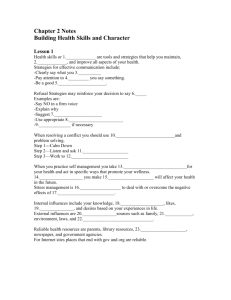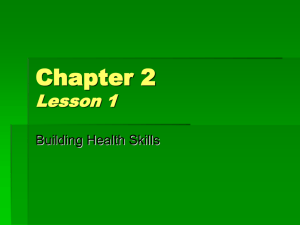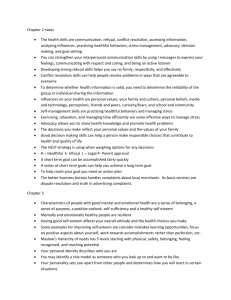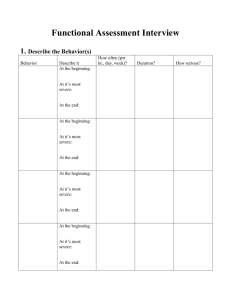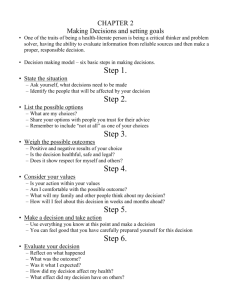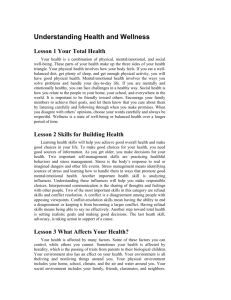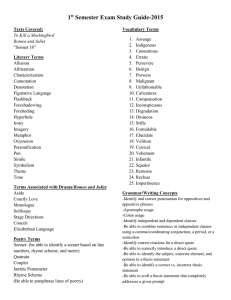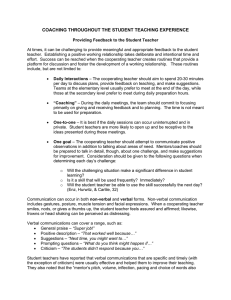health powerpoint, chapter 2-1
advertisement
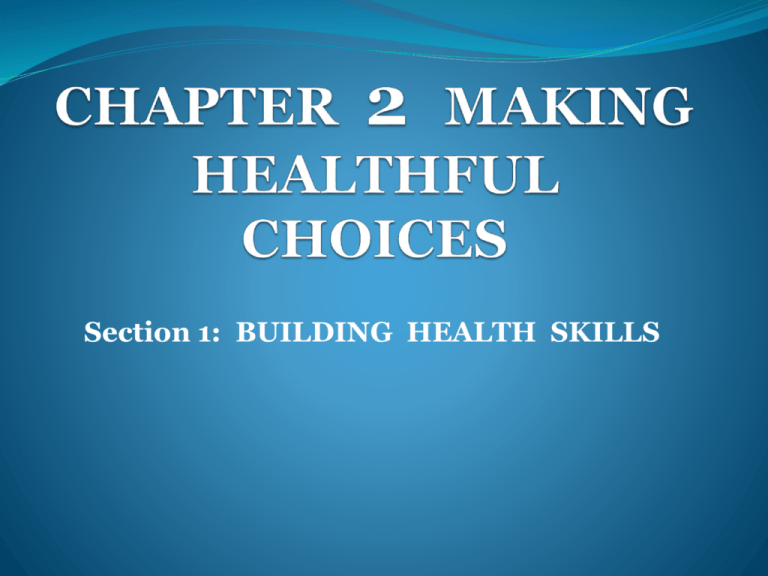
Section 1: BUILDING HEALTH SKILLS How do you take responsibility for your health? Make a commitment to take charge of your actions & behaviors. Commit to reduce risk & promote wellness. Now you’re ready to make informed decisions. Learning & practicing health skills is an important step in taking responsibility for your health. I. What are health skills ? 1. Health skills are specific tools & strategies that lead to better & more informed health choices. - health skills are used throughout your entire life. - developing health skills takes time & practice. - the immediate & long term benefits make the effort worthwhile. 2. Social Health Skills = 2 skills essential to good social health a. Effective Communicator – being able to express your knowledge, beliefs, and ideas in many different ways and forms. b. Includes the ability to say no to behaviors that threaten your health & well-being. 3. Communication skills= the process of sending to and receiving messages from others a. Effective communication involves making yourself heard and also being a good listener. b. The skill of communication includes: -clearly say what you mean. -pay attention to how you say something. -be a good listener. -be aware of facial expressions and hand gestures. 4. Refusal Skills a. Techniques that help you refuse when you are urged to take part in unsafe or unhealthy behaviors. b. It is important to know when another person’s needs and desires conflict with your own. Basic Refusal Skill Strategy 1. Say No !! Calmly. Use expressions: “sorry I don’t want to “ or “I’d rather not”. 2. Explain why you are refusing – state your feelings. Explain that the suggested activity or behavior goes against your values and beliefs. 3. Suggest alternatives to the proposed activity. 4. Back up your words using body language – make eye contact. – make it clear you don’t intend to back down. 5. Leave if necessary – don’t give in to continued pressure. Just walk away! II. Mental And Emotional Health Skills Another trait of a health-literate person is being a responsible, productive citizen by respecting yourself and others. This can be difficult in the teen years. 2 skills that can give you an emotional boost: 1. Building Self-Esteem – feelings of confidence & worth about yourself. a. Examine the messages you send yourself – don’t put yourself down & don’t send yourself negative messages. b. Focus on the things you do well. 2. Stress Management Skills When stress threatens to become overwhelming, try these strategies: a. Re-channel your energy – redirect pent-up negative energy by working out frustrations through physical activity. b. Relaxing – soothing music, warm baths, taking it easy. c. Laughing – when the going gets tough, the tough get laughing. III. Total Health Skills A health-literate trait is being a self-directed learner, gathering and using reliable health information. Mastering this skill and seeking help with problems benefit your total health and well being. Total Health Skills Strategies 1. Accessing Reliable Information: - Consider the source – pay attention to the reputation of a given media source. - Consider the “angle”- Ask yourself if the publishers of media are trying to sell you something and do they have you best interest in mind? Total Health Skills Strategies 2. Getting Help -Think of people who can offer assistance (parents, teacher, counselor, religious leader). -Learn about resources in your community (internet, yellow pages, school nurse). -Learn about print and electronic resources (health.glencoe.com).
